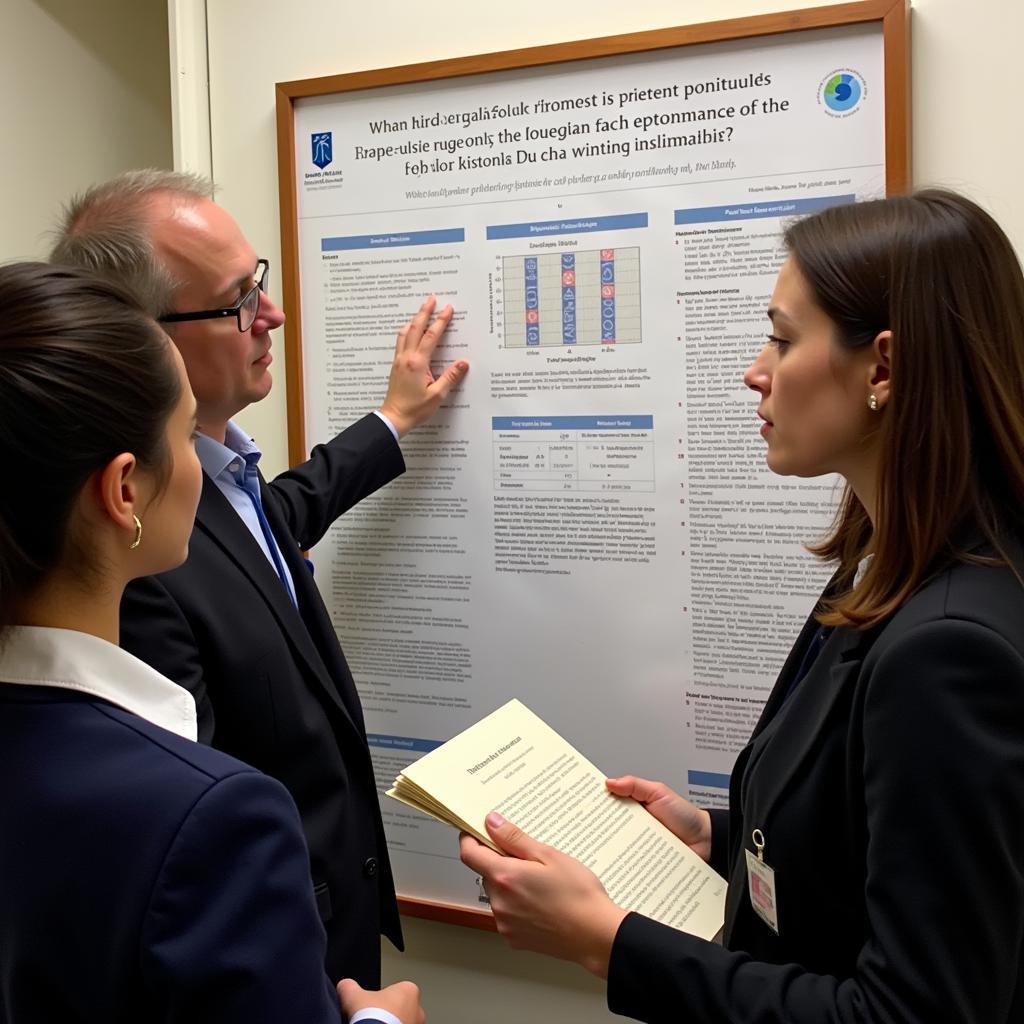Empirical research vs. non-empirical research represents two distinct approaches to understanding the world, especially within the realm of the paranormal. While empirical research relies on observable evidence and scientific methodology, non-empirical research explores phenomena through theoretical analysis, logical reasoning, and philosophical inquiry. Understanding the differences between these two approaches is crucial for navigating the often-murky waters of paranormal investigation.
non-empirical vs empirical research
Diving into Empirical Research: The Scientific Approach
Empirical research, the cornerstone of scientific inquiry, is grounded in observation and experimentation. It involves systematically collecting and analyzing data to test hypotheses and draw conclusions. In paranormal research, this could involve using EMF meters to detect electromagnetic fields, thermal cameras to identify temperature anomalies, or audio recorders to capture unexplained sounds. The strength of empirical research lies in its objectivity and reliance on verifiable data. However, its limitations in the paranormal field become apparent when dealing with phenomena that defy easy measurement or replication.
What are the key characteristics of empirical research? Empirical research is characterized by:
- Observation: Directly observing phenomena in a controlled or natural setting.
- Measurement: Quantifying observations using standardized instruments and procedures.
- Experimentation: Manipulating variables to determine cause-and-effect relationships.
- Replication: Repeating studies to validate findings and ensure reliability.
 Empirical Research in Paranormal Investigation
Empirical Research in Paranormal Investigation
Exploring Non-Empirical Research: Beyond the Physical
Non-empirical research, while not relying on direct observation, plays a valuable role in exploring the paranormal. This approach utilizes methods like literature reviews, conceptual analysis, and philosophical arguments to understand phenomena. For instance, researching historical accounts of hauntings, analyzing cultural beliefs about spirits, or exploring philosophical theories of consciousness can offer valuable insights. While non-empirical research may lack the scientific rigor of empirical methods, it provides a framework for interpreting findings and generating new hypotheses.
How does non-empirical research contribute to our understanding of the paranormal? Non-empirical research helps by:
- Contextualizing phenomena: Placing paranormal events within historical, cultural, and philosophical contexts.
- Developing theories: Formulating conceptual frameworks to explain and interpret observations.
- Generating hypotheses: Suggesting potential explanations for paranormal activity that can be tested empirically.
- Exploring ethical implications: Examining the moral and ethical considerations surrounding Paranormal Research.
Integrating Empirical and Non-Empirical Approaches: A Holistic Perspective
While distinct, empirical and non-empirical research are not mutually exclusive. They can, and should, be integrated to achieve a more holistic understanding of the paranormal. Empirical data can provide evidence to support or refute theories developed through non-empirical methods. Conversely, non-empirical research can provide a framework for interpreting empirical findings and guiding future investigations. For example, historical accounts of a location might suggest areas for targeted empirical investigation, like using EMF meters in specific rooms.
“The interplay between empirical and non-empirical research is crucial for advancing our understanding of the paranormal. It’s like two sides of the same coin – both essential for a complete picture.” – Dr. Evelyn Reed, Paranormal Psychologist.
Empirical vs Non Empirical Research: Addressing Key Questions
What’s the main difference between empirical and non-empirical research in simple terms? Empirical research deals with observable data, while non-empirical research focuses on concepts and theories.
empirical vs non empirical research
Which research method is best for studying ghosts? Ideally, a combination of both empirical and non-empirical methods. Empirical methods could involve using recording devices or thermal cameras. Non-empirical methods could involve reviewing historical accounts or cultural beliefs associated with the location.
Can non-empirical research be considered scientific? While non-empirical research contributes valuable insights, it is not typically considered scientific in the same way as empirical research, which relies on testable hypotheses and verifiable data.
research methods and statistics in psychology
 Integrating Empirical and Non-Empirical Research in Paranormal Studies
Integrating Empirical and Non-Empirical Research in Paranormal Studies
Conclusion: The Power of Combined Approaches
The debate between empirical research vs. non-empirical research in the paranormal field highlights the importance of a multi-faceted approach. By combining rigorous scientific methodology with thoughtful theoretical analysis, we can move closer to understanding the mysteries that lie beyond the realm of the ordinary. Integrating both approaches offers a powerful tool for exploring the unknown.
FAQ
-
What is empirical research? Empirical research is based on observation and measurement.
-
What is non-empirical research? Non-empirical research is based on logic, theory, and analysis.
-
Why is empirical research important in paranormal investigations? It provides tangible evidence.
-
Why is non-empirical research important in paranormal investigations? It provides context and frameworks for understanding findings.
-
Can both methods be used together? Absolutely, they complement each other.
Need Help with Your Paranormal Research?
Contact us for support: Phone: 0904826292, Email: research@gmail.com or visit us at No. 31, Alley 142/7, P. Phú Viên, Bồ Đề, Long Biên, Hà Nội, Việt Nam. We have a 24/7 customer service team. You can also find more information on research methods by visiting our pages on formal vs informal research and research terms and definitions.